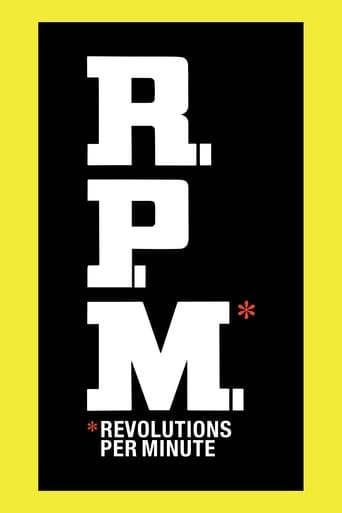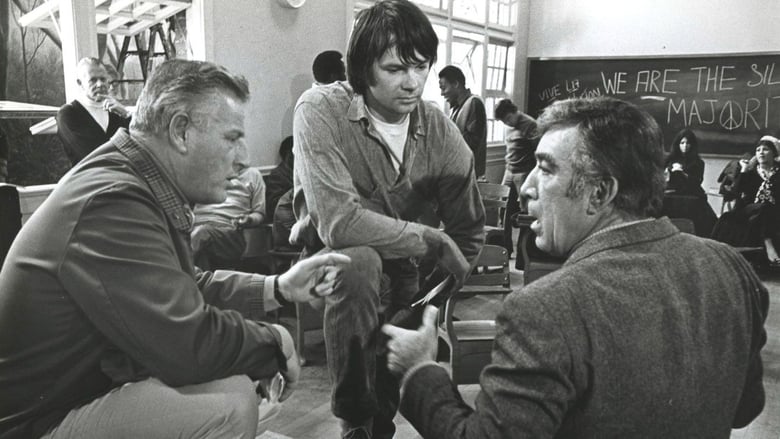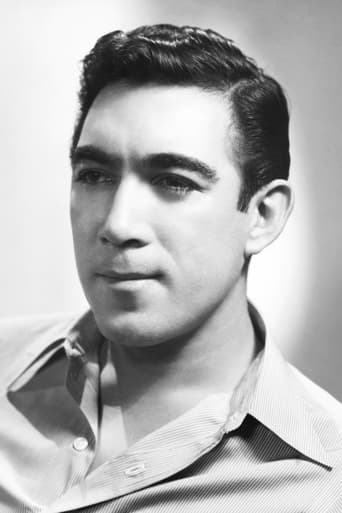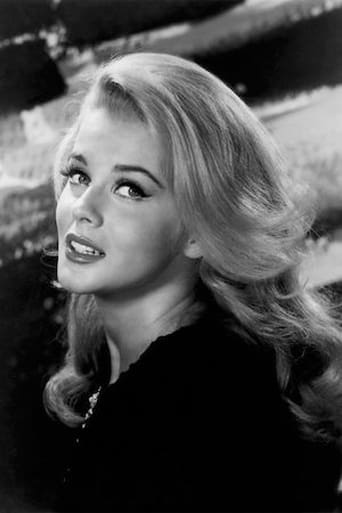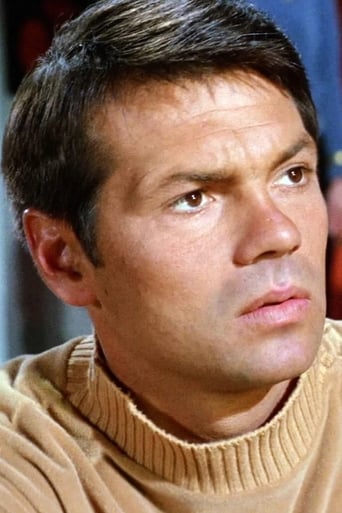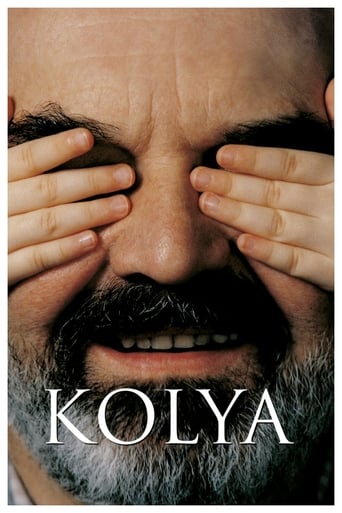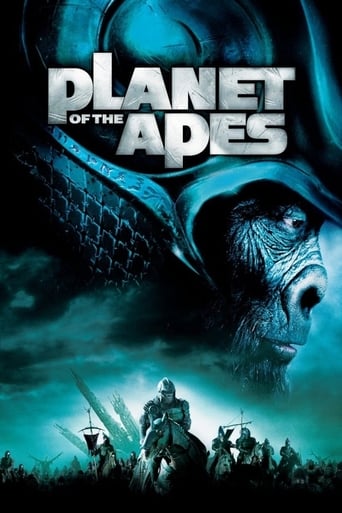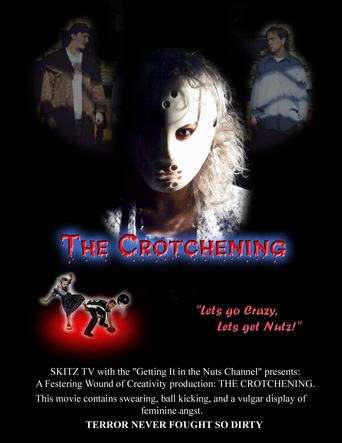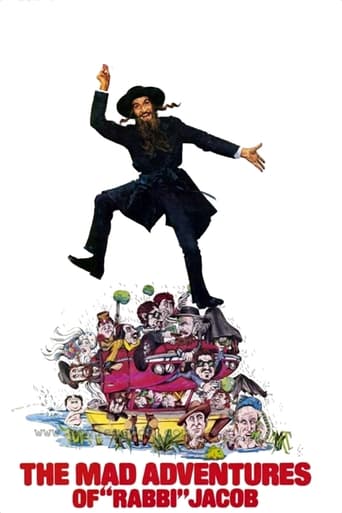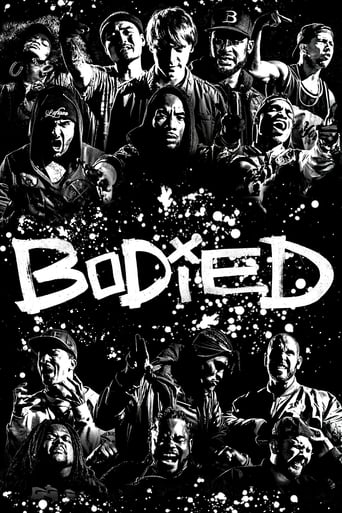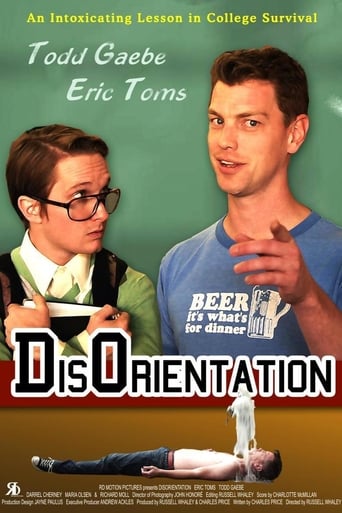R.P.M. (1970)
R.P.M. stands for (political) revolutions per minute. Anthony Quinn plays a liberal college professor at a west coast college during the hedy days of campus activism in the late 1960s. Radical students take over the college, the president resigns, and Quinn's character, who has always been a champion of student activism, is appointed president. As the students continue to push the envelope of revolution, Quinn's character is faced with the challenge of restoring order or abetting the descent into anarchy.
Watch Trailer
Cast


Similar titles
Reviews
Please don't spend money on this.
It's no definitive masterpiece but it's damn close.
Excellent, Without a doubt!!
It’s fine. It's literally the definition of a fine movie. You’ve seen it before, you know every beat and outcome before the characters even do. Only question is how much escapism you’re looking for.
Has Gary Lockwood ever played a character who didn't think he was a demigod? The script is full of nonsense. Ann Margret who is usually a stunning person comes off very guttural. Anthony Quinn's character is stale. Of course watching a liberal professor have to deal with the real-life consequences of his lectures would be a fascinating concept, but the film came at it from the wrong angle and the possible paradox was not explored well. I can say the film exposed the student movement for the ludicrous, hypocritical abuse that it was. Sadly the point was not driven home because I'm sure that wasn't the message the studio was trying to convey. As it came off it was very tepid, and undecided. Full of stale ideals that even in their day were not widely accepted. The characters were far from empathetic and with such a cast I would have thought that impossible.
Filmed on "The University of the Pacific" campus in Stockton, R.P.M. (political REVOLUTIONS per minute) at the time of its 1970 release was regarded as the worst of the "counterculture-revolution-on-campus" sub-genre of films. It has not improved with age and almost 45 years later is notable only for two good "Melanie" songs "Stop! I Don't Wanna' Hear It Anymore" and "We Don't Know Where We're Going" which play over three nice montage sequences of the President of fictional Hudson College coming and going to the campus Administration Building.Its fundamental problem (other than having hacks like Stanley Kramer as acting for-the-camera director and Erich Segal as writer) is that the focus is on adults rather than on students. Although casting an aging Gary Lockwood as the student leader meant than no viewer at the time imagined the film would ever have an authentic texture. Even the extras playing the sundry students look to be in their thirties; perhaps their list of demands included unrestricted access to the swimming pool in "Cocoon".The adults are Ann-Margret (Rhoda) and Anthony Quinn (Prof. F.W.J. 'Paco' Perez), whose performances simply do not complement each other in the few scenes they have together (blame Kramer's directing). Ann's big emotional scene midway through the film is an absolute mockfest moment. Poor Ann was one of those women who did not age gently but rather by plateau; she hit her first one in the late 1960's - almost overnight losing all her youthful glow. The idea was to make a 53 year-old professor seem hip because he lived with his 25-year-old graduate student, but the age disparity seems less between them than between Rhonda and a typical graduate student.Then again, what do I know? I'm only a child.
In "R.P.M." students take over and occupy the administration building of a California college as school President Tyler resigns. After midnight, the College Board of Trustees decides to replace Tyler with Professor "Paco" Perez (Anthony Quinn), a 53 year-old sociology teacher. He has three main assets: (1) He is popular with the student body, (2) he has a Spanish surname, and his hiring would exemplify progressivism, and (3) he lives with a 25 year-old graduate student Rhoda (Ann-Margret) who has difficulty in staying clothed. An obvious liberal, Perez attempts to negotiate with the students. A problematic situation arises as he became part of the "establishment" when he was appointed by conservative deans. He agrees with 75 percent of the student demands, but those concessions are not enough. One of the three demands not accepted is that the students want to hire the professors! But the students, led by 33 year-old grad student Gary Lockwood (Rossiter) and 31 year-old Paul Winfield (Dempsey), are reticent. When they do not obtain acceptance on ALL of their demands, they foolishly decide to destroy school property (computer equipment). As Perez is backed up against a wall, his option is to call in the police. So where is the resolution? Erich Segal's script is trite and hardly rises above comic-book level. Concerning the film's direction, where is the genuine emotion and character development? Anthony Quinn is always good, but in this movie he is miscast. Worse, 30 year-old Ann-Margret's performance as a collegian is ludicrous; she is way too old to be a typical grad student. As she does not exactly radiate intelligentsia, one wonders how she ever became an undergraduate. The impression does arise that she may have earned her bachelor's degree by lying on her back. Chemistry is lacking between her and lover Quinn, whom she even calls a hypocrite. Both Lockwood and Winfield are also too old for their respective characters.The late 1960s and early 1970s was a time of college campus radicalization, although the students on the far left comprised only a small percentage of the school population. But they were both vocal and active. They were quite volatile, hence R.P.M. = Revolutions per Minute. All in all, this pointless movie certainly shows its age.
A writer quipped that EASY RIDER was the most expensive movie ever made. Sure, it only cost 400 thousand to make and grossed 60 million. But Hollywood got the idea that it had to produce "youth" movies and so we got THE STRAWBERRY STATEMENT and THE Christian LICORICE STORE and THE MAGIC GARDEN OF STANLEY SWEETHEART and this movie, pretty much all of which are forgotten and got limited or no release.Woodstock was in August of 1969. Altamont was in December of 1969. This means that the Woodstock Nation lasted barely four months. Elizabeth Taylor has kept husbands longer than that.What the major studios did was get mainstream directors and told them make movies about youth in revolt. The result was movies like this which were very expensive imitations of movies that American-International had made in the sixties on nonexistent budgets.RPM is watchable for a fine performance by Anthony Quinn. Lord, but he's a trooper. The script was obsolete before the ink dried on it. I'll be generous and say that Eric Segal's screenplay stinks. Of course, forty years later LOVE STORY doesn't get all that much love anyway.The story centers on a Sociology professor who is picked to be president of a fictional college after protesting students occupy the administration building. The board has a late night meeting and decides to appoint Quinn president based primarily on the fact that he's sleeping with a graduate student in his department who is young enough to be his daughter.Imagine trying to sell that to a major studio in today's Politically Correct world. Ann-Margret plays the graduate student and recognizes the script to be crap, so she has fun playing this airhead and wears ridiculous costumes and, in one scene, talks with while chewing food so that audiences won't have to understand the words she's saying.Incredibly, this is directed by Stanley Kramer. Kramer had become a legend directing films like THE DEFIANT ONES, INHERIT THE WIND, SHIP OF FOOLS, JUDGMENT AT NUREMBERG, and GUESS WHO'S COMING TO DINNER, all of which dealt with Big Ideas from a socially progressive point of view. More importantly, they were full of characters that audiences could identify with and were fully realized human beings.RPM is like a pageant put on by a community college Sociology department. Characters represent Sexual Freedom, Corporate Apathy, Prejudice, Sexual Liberation, Black Power, etc.At its peak, the student revolution actually appealed to a very small per cent of students and had little support from the mainstream community. Worse yet, this film was released in the middle of Nixon's first term of office. Youthful idealism faded as more students pursued graduate studies in Business Administration.Thanks to Turner Classic Movies for running this. I'd heard of it, but figured that Columbia Pictures had destroyed all the existing prints hoping nobody would remember it. Somehow TCM found a pristine print in excellent condition. It would have gotten just one out of ten, but I had to recognize Quinn's excellent work trying to make a dead horse run.

